I want the Divine to smack someone upside their head, to cover their body in boils, to turn them into a pillar of salt There are times when I yearn for the God of the Bible’s Old Testament; the one who transformed a grandmother into a pillar of salt just because she was defiant and turned to look at the destruction of her home – the place where she grew up and raised a family. It’s not so much that I want vengeance, but rather, it is cosmic accountability that I seek.
I live with this uncomfortable paradox that is difficult for me to reconcile. I feel that we are all touched by the Divine. The bedrock of Quaker faith and practice is the belief that there is “that of God” in everyone, which I believe is true. When I find myself at an impasse in life I know (now) that I need only wait in expectant prayer and the answer will come. Here’s an example. I have always loved music. I play – not particularly well - the guitar and piano. And as a result, I often hear the voice of the Divine in the music wafting through my head. My wife is more than five years cancer free now, but the time when we were in the thick of her diagnosis and she was facing a major operation, was a difficult one for our family. One day during this fearful period, the Sam Cooke song, Stand by Me became an ear-worm, sounding over and over again in my mind, all morning long. When the night has come And the land is dark And the moon is the only light we'll see No, I won't be afraid Oh, I won't be afraid Just as long as you stand, stand by me As I was standing at my kitchen counter, looking out onto our back yard while waiting for my coffee to finish brewing the song popped up again and I found myself asking, “what is this about?” And as soon as I asked that question, the answer appeared. It was the Divine speaking to me in a way that would seep into my soul. Don’t be afraid. Stand by me. I broke down and wept. Not a tear or two kind of cry but a sobbing, weeping, tears pooling on the kitchen counter cry of thanks and relief for the whisper of grace I was given. So this is the paradox. I know in my soul that the Spirit of God speaks to everyone just as clearly as I know the Divine speaks to me. I know that God is whispering to our leaders to control guns, to honor equity, to stop hatred, greed and wars. God is calling on Donald Trump to stop dividing our country for his personal gain. The Divine is pleading with Benjamin Netanyahu to stop the carnage in Gaza and urging Putin to halt the war in Ukraine, and exhorting the Rapid Support Forces in Darfur to stop the genocide. The problem is, they aren’t listening or if they are, they don’t care. And that’s why sometimes I wish for the Old Testament God to pour down fire and brimstone upon those who commit atrocities for the sake of their own power and greed. I want the Divine to smack someone upside their head, to cover their body in boils, to turn them into a pillar of salt – just to make an example so the world will understand: God is calling. Listen up! I’m not proud of these feelings of cosmic wrath and understand that they aren’t very Quakerly. So I prayed for guidance, and the answer I received was this: “Listen. Have faith. Shine your own light onto the world.” I suspect this doesn’t just apply to me. I doubt I’m the only one with dreams of vengeance and wrath. The Bible says that Lot’s wife was turned into a pillar of salt because she was disobedient and looked back. Maybe we are all called to look forward and not to look back, to become vessels of the Divine, to be the light of peace to those around us. And just maybe, that will be enough.
1 Comment
How does one reconcile the carnage with the holy? Within the quietude of Quaker faith and practice rests a radical thought: that every day is holy. This is one reason why we don’t celebrate major Christian holidays such as Christmas or Easter. The theology is pretty straight forward and stems from the foundational belief that the spirit of God is found in everyone, without exception. Every day is infused with the presence of the Divine and therefore there is no sense of waiting for the coming of God or seeking the Spirit which may be absent. The spirit of the Divine is present within us. It has always been and it will always be. There is nothing we can do to earn this grace and there is nothing we can do to lose it. God is with us all, now and forever.
I try – and mostly fail – to live my life embracing the Spirit within me and within everyone I know and everything I see. I sometimes imagine myself swimming in the water of the Divine each and every day. Like a fish in a lake surrounded by water, we are all surrounded by God. The Divine is in the air we breathe, in the food we eat, in the ground we walk upon, in the people we meet, in the clouds above and in the cosmos beyond. Seeing the holy in everyday life isn’t about grand gestures. Rather, it is about noticing the wonder of the mundane; rejoicing in the dance of the dust in the sunlight streaming through your bedroom window. It is about noticing the grandeur of a butterfly or the delight of a child at play, or the miracle of a seed transforming into a flower. When we do the laundry or prepare a meal or meet with a friend in need, we are performing an act of worship – channeling Divine Light into the world. And so, if we spend our days immersed in the glory of God, then every day is a holy day. Or is it? I am haunted by the recent images I’ve seen in the Washington Post about the bloody aftermath of the shooting of 19 innocent children and two teachers at the Uvalde Elementary School in Texas on May 24, 2022. The newspaper has taken up the charge of bringing front and center the horror of what actually happens at a mass shooting. For example in classroom 112 at the Uvalde school we learn that the children were huddled together in a corner before they were massacred. One of the pictures in the Post shows the classroom at a distance where you can just make out the blood stained floor at the far upper left of the frame. But then, the next picture takes you up close. The blood is deep and crimson and smeared, and there is a tiny blood stained tennis shoe in the middle of the gore. It is heartbreaking. And then I am reminded of another picture, equally heart wrenching, of a Palestinian mother sitting on the ground, her head down as she is clutching the shroud wrapped body of her child. The child’s limp arm protrudes from the white cloth. And we know that this scene is repeated thousands of times. How does one reconcile the carnage with the holy? Certainly there is goodness and light throughout the world if we only look for it. But, that may be of little solace to the mother mourning her child whom she will never kiss again. Perhaps with some time and distance, these families will return to seeking the light of the Divine. But in the immediacy of it all, I imagine there is only darkness. Maybe the answer to the question of how does one reconcile the carnage with the holy is that we can’t. Maybe all we can do is hold the paradox of light and darkness in our hearts. Holiness does not mean an absence of death, or disease, or greed, or cruelty. Holiness simply means that in the midst of it all there is still the presence of God. It is we who are holy and it is we who must shine the light of the Divine onto the profane. In the words of the eastern mystic Rumi: “If everything around seems dark, look again, you may be the light.” 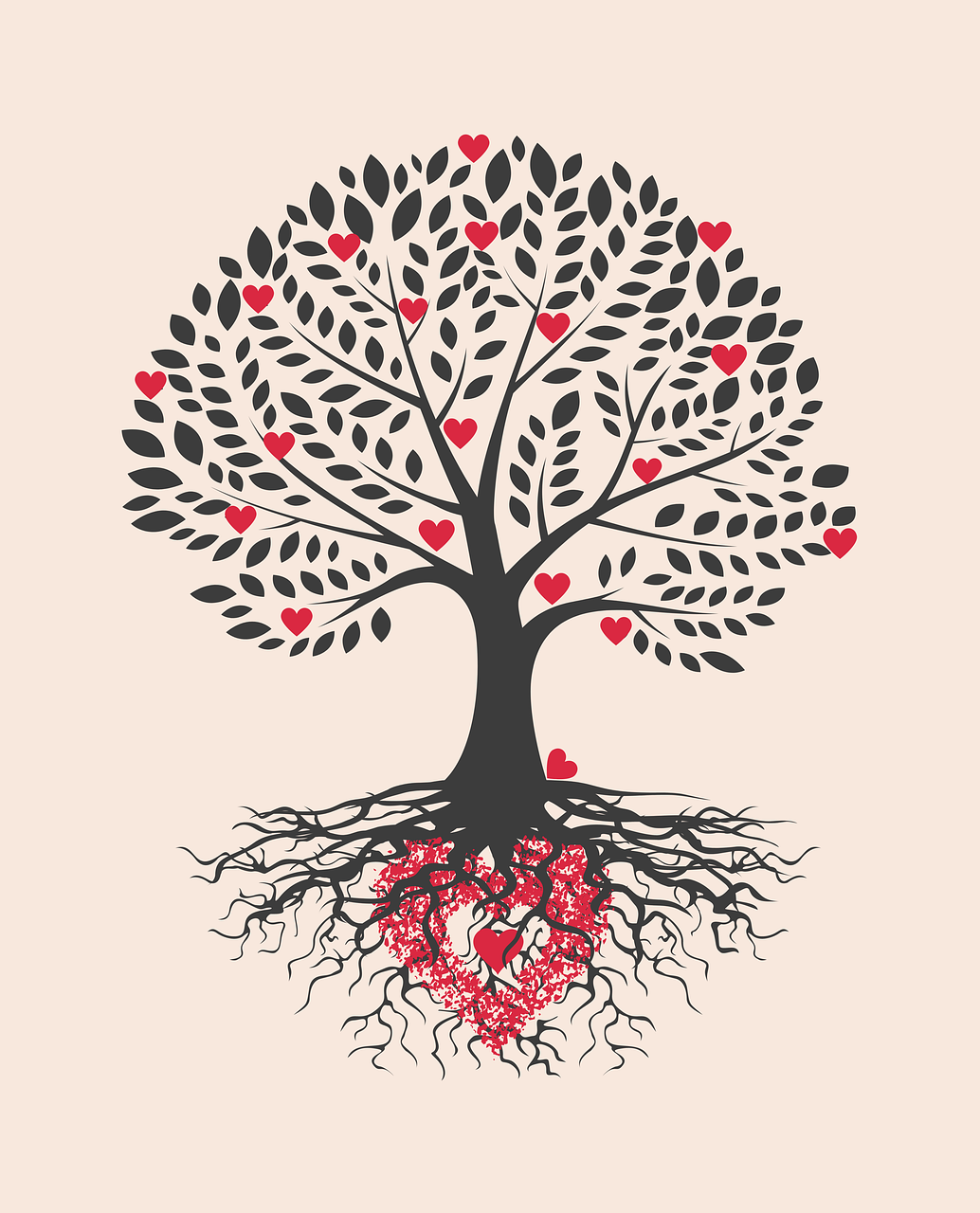 Image by Rosy from Bad Homburg / Germany from Pixabay Maybe the issue isn't to stop sowing bad seed...(but instead) to sow more good seeds The idea of reaping what we sow is often considered at the individual level and usually in the same vein as Karma: the actions we take come back to us in good ways and bad. I find it interesting to look at this concept of reap what we sow at a societal level. Does a society like the United States – collectively – reap what it sows? Perhaps. Here are a few examples.
In America, we sow guns – by the hundreds of thousands throughout the land. Best estimates are that Americans own somewhere between 350 Million – 480 Million guns; in a country of 340 Million people. And what do we reap from all these weapons? We “lead” our peer countries in the number of mass shootings, gun-related homicides; gun-related suicides and most recently, firearms becoming the leading cause of death among children. We also sow carbon dioxide. The US represents nearly 4.25% of the world’s population, but yet we emit 13.5% of the carbon dioxide into the atmosphere; eclipsed only by China according to the organization, Our World in Data. The “harvest” from this overabundance of carbon dioxide is a growing number of climate disasters such as excessive heat waves, drought, floods, wildfires, and hurricanes. NOAA charts US climate disasters based on the total cost of the damage wrought by each incident. According to NOAA, 2022 marked the eighth consecutive year with 10 or more billion-dollar disaster events impacting the United States. In the past, the US experienced about 8 such events per year, but within the span of 2018 – 2022, we averaged nearly 18 events per year – more than double the historical number. We also sow plastic; tons and tons of plastic. The production of plastics, which are made from fossil fuels, has increased at exponential levels. Half of all plastic – ever produced – was made within the past 15 years. Consider this, in 1950 we produced a mere two million tons of plastic. By 2015, we were producing nearly 450 million tons of plastic per year, and if unabated that number will double by 2050. And the biggest producer of plastic waste in the world? The United States. What do we get from sowing all this plastic? Some studies estimate that there are between 15 – 51 trillion pieces of plastic floating in the world’s oceans. In fact, the plastic garbage patch floating in the Pacific Ocean is large enough to encompass the combined midwestern states of Wisconsin, Minnesota, South Dakota, Illinois, Indiana and half of Ohio. This sea-borne plastic begins to break down chemically from the interaction of sun, waves and seas into tiny “microplastic” particles, which have been found in every part of the world from the peaks of Mount Everest to the Mariana Trench – the deepest trough in the ocean. Microplastic particles breakdown into exceedingly smaller particles and seep into drinking water systems and into peoples’ lungs through the air. Clearly, we the people of the United States are sowing some pretty nasty seeds and reaping untold carnage on ourselves and others. But, what are we to do? Well, the simplistic answer is to stop sowing bad seed. Of course, that’s not so easy. Countless numbers of individuals and organizations have been working for decades to stop the spread of guns and plastic waste, and to limit the production of carbon dioxide – with little significant success. To me, all of these bad seeds stem from the same problem: people are trying – unsuccessfully – to fill a gaping hole in their heart. We look around and see a breakdown in community so we become fearful of others; fearful that life as we know it will be taken away; fearful that there won’t be enough resources to go around and thus greed and hording begins to take hold. Many of these issues seem so large and intractable that a sense of powerlessness sets in and we begin to resign ourselves to a future of dwindling possibilities. Maybe the issue isn’t to stop sowing bad seed, as much as it is to redouble our efforts to sow more good seeds. We Quakers like to say that there is “that of God” in every person. Put another way, we can say that the seed of the Divine is present within everyone, and what is needed is to shine the light of God deep enough, wide enough, and strong enough to bring that seed forth from each individual. As advised by Maxine Hong Kingston, “In a time of destruction, create something. A poem. A parade. A community. A School. A vow. A moral principle. One peaceful moment” The light of God is within you. Let that light shine so others may blossom and illuminate the world. There is no universe without a conscious presence to perceive it Science has caught up with what mystics and religions have been saying for hundreds of years: that there is a singular consciousness unifying everything and that death is no more than a transition from one perspective to another.
Quantum theory – through decades of propositions and experiments - has upended scientific thinking about how the universe operates at both the micro and the macro level. Here are just a few of the revolutionary ideas that have now become accepted fact among many in the world of physics:
A similar experiment split the wave into two pathways, one shorter than the other. At the end of the longer path is a meter to measure the wave. A lab assistant randomly turns the meter on and off. As expected, when the wave that had taken the longer path is measured, it turns into a particle. Amazingly – the partner wave that split and took the shorter path – retroactively turned into a particle, as well. The split waves are said to be “entangled” and the two act as one entity – doing so even when they are hundreds or thousands of miles apart. When one changes, the partner particle matches the change and seems to do so instantaneously, calling into question the actual nature of space and time. A couple of quotes from the famous physicist Stephen Hawking may be helpful…or not: “ There is no way to remove the observer – us – from our perceptions of the world…the past, like the future, is indefinite and exists only as a spectrum of possibilities.” “..One day there may well be proof of multiple universes. It would not be beyond the realms of possibility that somewhere outside of our own universe lies another different universe…” So, here is what we have so far: entangled waves in superposition wait - possibly in multiple universes – for an observer to birth them into existence as matter. One has to remember this isn’t science fiction, but rather it is a set of proposals supported by a growing number of leading physicists, three of whom won the 2022 Noble Prize for their experiments on this very topic. This raises all kinds of vexing questions, not the least of which is: what is the role of consciousness in these developments? And, even more fundamentally – what is consciousness? Dr. Robert Lanza – hailed by Time Magazine as one of the world’s 100 most influential people – has written several books on Biocentrism that weaves together the concepts of quantum theory with the idea that it is consciousness that created the universe and not the other way around. And if there is no universe without a conscious presence to perceive it, then the only logical conclusion is that there must be a universal consciousness beyond our individual sense of self. Lanza is one of many proponents of the Multiple Universe Interpretation of quantum theory, suggesting - like Stephen Hawking - that possible alternatives of life may be occurring now in multiple universes. For example: In one universe Russia succeeded in sweeping through Ukraine in a matter of days, while in another universe there was no war at all and Ukraine won back its occupied territory through diplomatic initiatives. Finally, Lanza speculates that consciousness never ends, and quite possibly we just transfer our conscious self into another alternate universe. There is so much of quantum theory that I find baffling and have a difficult time to comprehend fully. Kind of like religion or spirituality. There is a great deal that can be read about the individual soul and the Divine, but at some point belief comes down to a quiet faith. Now that, I think, I can handle. Attend to your own heart I read an article recently that caused me to ponder my own spirituality. The article described how both of the conservative candidates for WI Supreme Court graduated from the same evangelical based law school founded by the TV evangelist Pat Robertson. It further described how Wisconsin judge Jennifer Dorow begins each weekday by reading her bible and praying.
My theology is this: if you open yourself up to the Divine, then you will be led to the work you were meant to do to realize the Kingdom of God on earth. Now. My experience of the Spirit is that the Divine is a God of love, of relationship, of preferential options for the poor, of justice, of mercy. I do not doubt that Judge Dorow’s faith is real. But how can someone who sits in the presence of the Spirit every day come to a place where she says the worst decision by the U.S. Supreme Court was the one striking down Texas anti-sodomy laws which opened the doors for legal same-sex marriage? Is Judge Dorow praying to God and not listening for God? Or, am I listening for God but mistaking my own voice for that of the Divine? Is one of us wrong? Can both of us be right? Can God be leading us both in ways unfathomable to our conventional understanding? I brought this conundrum with me to my Quaker Meeting for Worship where I can hand over my concerns and wait in expectant silence to see if a path forward emerges. On this topic I received a clear and compelling answer; one that is so simple that it made me chuckle to myself while sitting in silence. The answer was this: Don’t worry about it. Don’t concern yourself with why or how others may be led. Simply listen for your own leadings and act on them. Attend to your own heart and give everything else over to God. every group has an insider clique. My smart aleck quip is that there were only 12 Apostles I feel like I’ve spent my entire life straddling the line between the “inside group” and the outsiders. In high school, I was friendly with the “cool kids” but felt more at home with the mountain boys and the greasers. As a public policy advocate, I got to the point where mayors and governors and many elected officials knew me by sight and by name, and were friendly (for the most part) but I never had any delusions that I was ever really at the table with them (except for my stint as chief of staff to the mayor of Milwaukee. But that’s a story for another day.)
It has been my experience that every group has an insider clique. My smart aleck quip is that there were only 12 Apostles – while the crowds following Jesus sometimes numbered into the hundreds. Did you ever wonder about the 13th Apostle; that liminal soul who was close enough to the “insider group” to have a sense of what was going on, but who remained an outsider - acknowledged but not fully accepted into the heart of the band of believers. In fact, we do know who was the 13th Apostle (Acts 1:21-23). His name was Matthias and he was chosen (by casting lots) to replace Judas. In order to qualify for the position a candidate needed to be among the group from the beginning when Jesus was baptized and up and through the time he was taken away. And only two men made the list: Matthias and Joseph. One has to wonder whether any women met the criteria but who were excluded because of gender bias. Inner circles, outer circles, who is in and who is not. These are issues plaguing groups since our early ancestors fought over who slept close to the fire and who was relegated to the cold and frightful dark of night. What does this dynamic tell us about the human condition? And what does it say about each of us as individuals who crave to be included? The mystics tell us that our need to be acknowledged and accepted is nothing more than our little ego crying out for attention. And, that if we were spiritually grounded, we would realize that we are magnificent transcendent beings playing hide and seek in a human body. I must admit, I’m often not that enlightened. I try, and sometimes catch a glimmer of the warm light of the Divine. But for the most part I fail to live a life rooted in the knowledge that I am one with the Spirit. I find myself craving love and attention. I often measure my worth against others who seem to have it more together. I realize that this self-doubt is directly related to the amount of time I spend in contemplative prayer. Little time in prayer results in a lot of time in doubt. What I learn in prayer – and must relearn time and again – is that I am God’s beloved. And nothing I do or say can change that. God’s love can’t be earned and it can’t be lost. It just is. Whether there were 12 apostles or 14 is immaterial. Creating an inner circle and an outer circle is a human construct that reinforces a false sense of self. The secret is that we are all apostles. We are all part of the inner circle. It was Voltaire who said “God is a circle whose center is everywhere and circumference nowhere.” For all of us who have spent most of our lives on the outside, yearning to be on the inside – like Joseph and Matthias - I’d like to say that being an apostle is a big deal. But, it’s a group to which we all already belong. “God comes to us disguised as our life” (Paula D'Arcy - writer) I read the above quote in one of the daily meditation emails I receive, and found that it spoke to me.
Perhaps what appeals to me about the quote is that it mirrors a core Quaker belief: there is that of God within each person. In my ongoing spiritual journey, I have found that the essence of the divine is found in our hearts; in the world where we walk, and in the people with whom we meet. The image of an omniscient god who resides in the kingdom of heaven is as alien to my unfolding spirituality as is the worshipping of a sacred golden calf. I once had an insight while in contemplative prayer which was this: Most of the time I walk around unaware of the spirit which surrounds me, yet there are few but precious moments when I become aware that I am swimming in the deep ocean of god; that the light of the divine radiates from every atom in the cosmos like heat radiating off of a black car sitting in the midday sun. Sometimes during meditation, my mind wonders fiercely and I catch myself struggling to “get it under control.” And then I laugh at myself and at my futile attempt to catch a light that is already there; one that I can absorb by simply sitting back and basking in its warmth. The God I know doesn’t hide from me. The spirit isn’t one that withholds love until I have earned it or that comes and goes for reasons too grand for me to comprehend. No, the spirit of god is upon me – just as it is upon each of you – just as it is upon the dust that we see drifting through the sunlight. God comes to us disguised as our life. Our job, is to simply say hello. I have to confess, that loving the SOB in the Lexus wasn’t my first reaction…or my second…or my tenth. I had an encounter that made me angry. And every time I thought about that incident for weeks after, I got angry all over again. Clearly – a lot of unfinished business here.
The episode occurred as I was picking up my five year old granddaughter from school. We were parked on the side street adjacent to the school. We got in the car, and as my wife was in the back seat buckling in our little one, I was preparing to drive away. A car rolled up next to me just as I turned on my blinker to pull out. I waited for them to pass, but they pulled directly in front of me and then backed up. I had my blinker on and I honked my horn as they were backing up – clearly trying to signal that I just needed to pull out. But the car proceeded to back so closely that I was blocked in. I honked again and threw up my hands asking – in effect – WTF? No response. My inclination was to walk over to the car and ask them to let me out, but knowing my own state of mind and how the other driver didn’t seem to care, I decided that causing a confrontation in front of my granddaughter wasn’t worth it. So, I sat and fumed. What made matters worse was that the car blocking me in was an expensive, Lexus SUV. So as I simmered in anger, I imagined the owner to be a white, wealthy, and entitled SOB. Not my most Quakerly moment. I have since spent time in prayer and reflection trying to understand the seeds of my anger. Part of it is the anger I inherited from my father who was openly suspicious of anyone in a position of wealth and power. His anger rested in the fact that his family was made homeless after his father was killed in a coal mine explosion and the coal company evicted his grieving family - a widow with five children - from the company house and cut off credit to the company store. But there is more going on under the surface with me than the latent anger inherited from my father. My anger also grew from a sense of powerlessness I felt. If I wasn’t willing to cause a confrontation, then there was really nothing I could do but sit and seethe and wait for the offending car to leave. Another source of anger I identified was a sense of sorrow for a loss of community, and of a lack of support for the common good. I found myself grieving over a way of life that seemed to be swiftly washing away. Things like civility, honesty, community, common good, respect, caring, democracy, all words that once defined the best of America in the not so distant past, now seem quaint… and meaningless. As I sat and pondered over this sense of loss, I realized that the words I used to define a longed for past, are the very same words used to describe the same sense of loss also felt by those who so ardently support the movement towards the far right and towards autocracy in America today. They too feel that the country they knew and love and felt secure in, is being quickly eroded by the “radical left”, by immigrants taking their jobs, by a drug epidemic that ravaged their community, by urban machines that “steal” elections, and so much more. Ironic isn’t it? That if one digs deeply into the feelings of angst and anger, be it a farmer from Elroy Wisconsin or a store clerk on Burleigh Street in Milwaukee, we find a common sense of loss of community and a common sense of a loss of power to affect change. Feelings of anger and powerlessness seem to predominate in our culture at this moment. Black and Latinx anger certainly were on in the streets during the 500+ protests throughout the summer of 2020. White anger seems to have driven the failed coup attempt on January 6th. If you have friends on Facebook who are conservative, you can see the almost daily posts of anger over a loss of culture and country expressed on the memes they share. Where will it all end? How do we begin to heal? Does it all have to come crashing down before we are shocked into a time of mass healing? I know that the answer to my anger is love. But I have to confess, that loving the SOB in the Lexus wasn’t my first reaction…or my second…or my tenth. In fact, it wasn’t until deep reflection that I even considered love as an answer. The only thing that stopped me from an angry confrontation with the Lexus driver was the love I have for my granddaughter. I didn’t want to be a poor example of how to handle my frustration in her eyes. What would have happened if I would have sat in my car and thought about ways to show love to the Lexus owner instead of fuming and heaping assumptions of privilege upon him? Would I have felt my anger bubble up again and again each time I remembered this encounter? What would have happened if I would have simply prayed – asking for guidance on how to proceed or how to perceive the whole thing in a more divine light? If showing love for our enemies is a step too far, perhaps then prayer is the best answer. I don’t mean prayers for God to make everything OK or for the Divine to right all wrongs. I’m talking about a more basic kind of prayer, one that asks for simple guidance. Perhaps the best prayer is this: “Lord, I know your light is in my heart. Help me to let it shine on this moment.” Such a prayer puts the onus on us to become the light of God in the world. It takes us from a point of powerlessness and anger and moves us to divine action. Now that’s an example I’d be proud share with my granddaughter. Identifying grace...is easy when life is going our way. but, what about when life is hard?" One can’t understand gratitude without embracing grace. It is by reflecting on the grace that befalls us every day that we begin to develop a deepening sense of gratitude. On good days, it is easy to see the grace all around us; in the warm breeze, in the touch of a lover’s hand, in the laughter and innocence of a child.
Poet Mary Oliver noted that “Attention without feeling… is only a report. An openness …is necessary if the attention is to matter.“ Oliver was a master at holding up the wonder of the world for all of us to reflect upon. A honking goose, a grasshopper, the rain or sun, the trees or clouds – all were means she used in her poetry to help us uncover something deeper and richer emanating from our soul. The grace of the world provides an ongoing invitation to experience the whisper of God from within. It is a small step to go from recognizing the grace that abounds to being grateful for our many blessings. G.K. Chesterton wrote that “…gratitude is happiness doubled by wonder.” First, we marvel at the grace that showers us and then we cannot help but to become grateful for the bounty the Divine has granted. Of course – identifying grace and showing our gratitude for it is easy when life is going our way. But, what about when life is hard? How do we find grace and gratitude when we are in debilitating pain, or when we have lost a loved one, or when we have been fired from our job or when a family member has succumbed to drugs or alcohol, or when we have been abused? What then? Many a good believer has turned sour on the Spirit when life becomes crushing and prayers go unanswered. The silence of God during desperate times can be the harshest cruelty to befall a struggling soul. An excerpt from Psalm 102 aptly sums up this sense of existential void: For I have eaten ashes like bread and mixed my drink with tears… for You have picked me up and cast me aside… and I wither away like grass. It is when such spiritual darkness consumes us, when the thought of God’s grace is mocking us, when gratitude is beyond us, it is then we find whether we are led by faith. Only faith can sustain us when our troubled hearts and minds have crowded out grace and gratitude. Grace is bestowed upon us freely whether or not we desire it or feel we deserve it. Gratitude is a byproduct of our embrace of grace. But faith comes from the foundation of our relationship with the Divine who is always calling to us. We build up our faith when we work to quiet our ego and strive to hear the voice of our inward teacher. The more we open ourselves up to God, the brighter does the light from within illuminate our path. It is no accident that the Christmas celebration of the light of God incarnate comes during the darkest days of the year. Even before the birth of Jesus, people celebrated the winter solstice (December 21st) as the point when the dark days begin to wane, and light conquers darkness. Some have said that we either walk by faith or we walk in fear. I don’t think the world is ever that clear. Our lives are a paradox filled with the ebb and flow of grace and gratitude, woundedness and despair. We cannot evade the darkness in the world or the darkness in our souls. But we can take solace in knowing that light abounds; that grace abounds; that love abounds… and that the darkness will end. The light of God abounds, and such is the grace we have been given. For this unearned grace, I am profoundly grateful. |
AuthorMike Soika has been a community activist for more than 30 years working on issues of social and economic justice. His work for justice is anchored by his spiritual formation first as a Catholic and now as a Quaker. Pre 2018 Archives
|
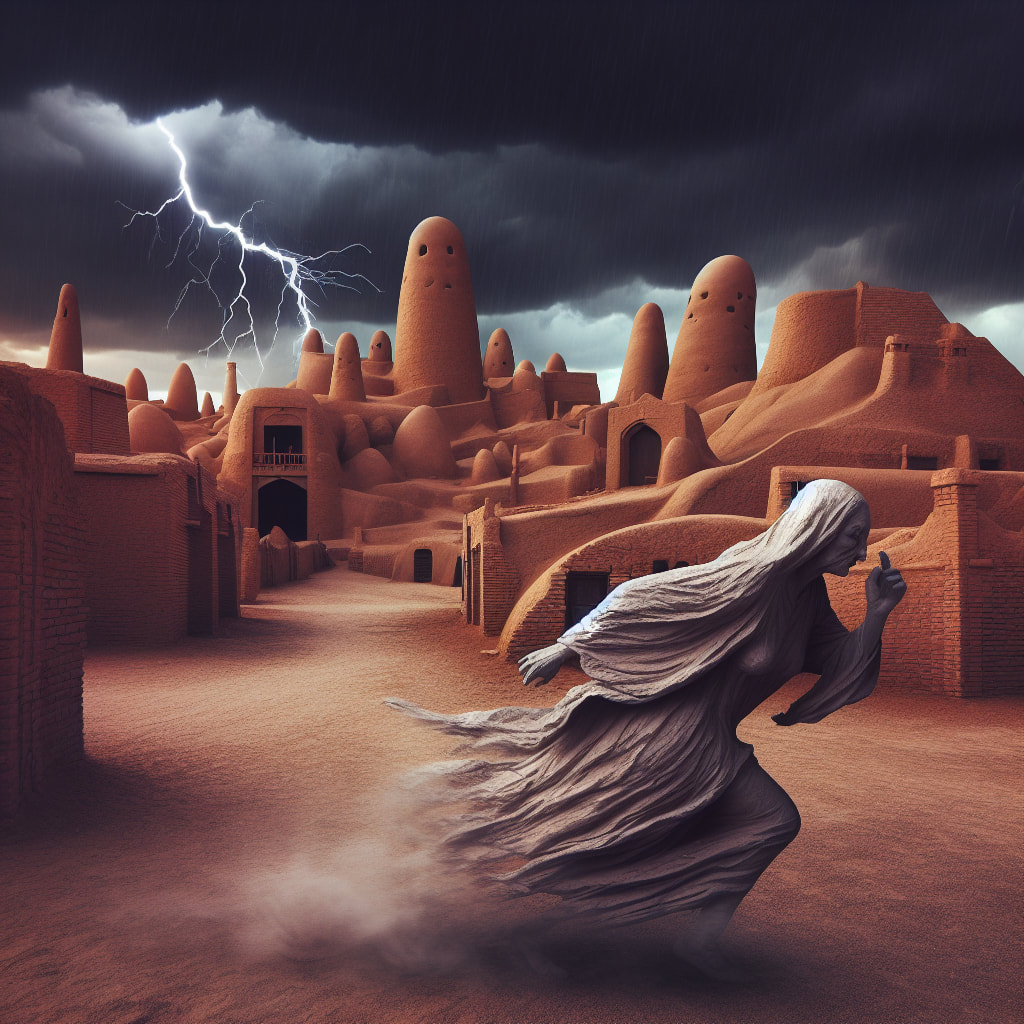
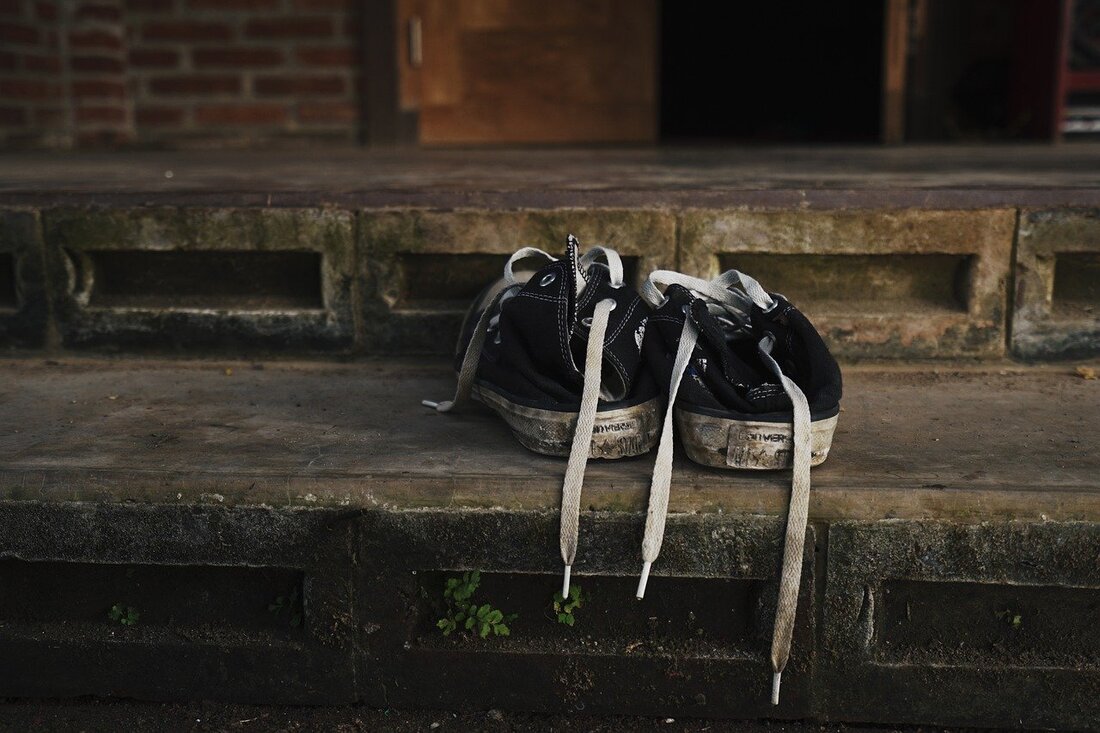
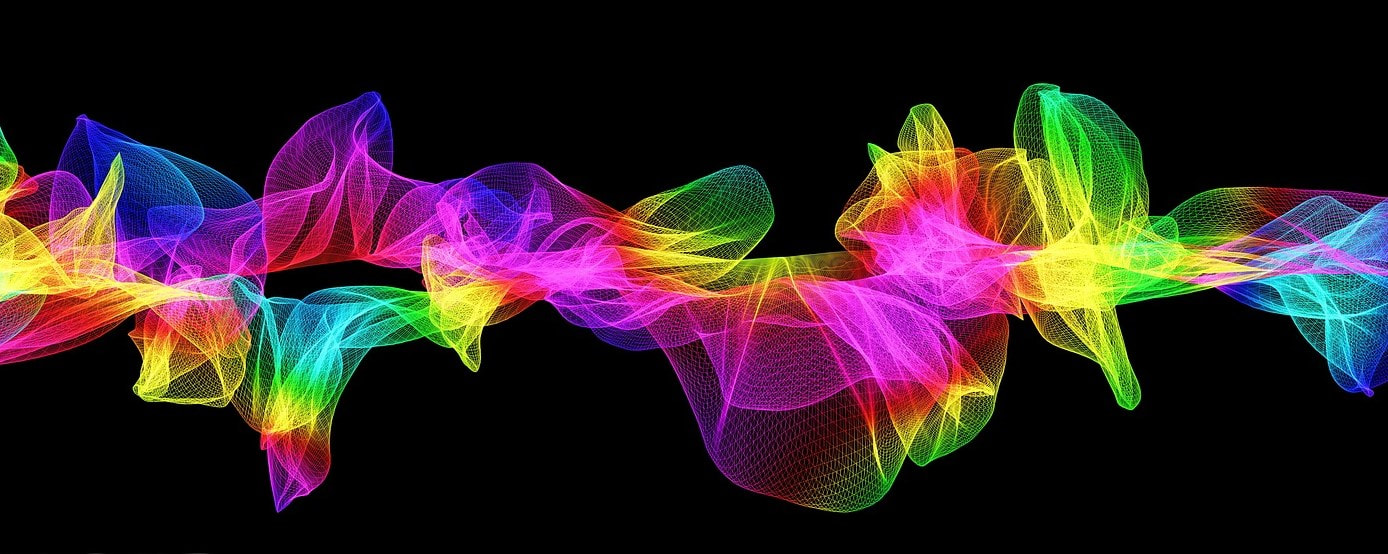
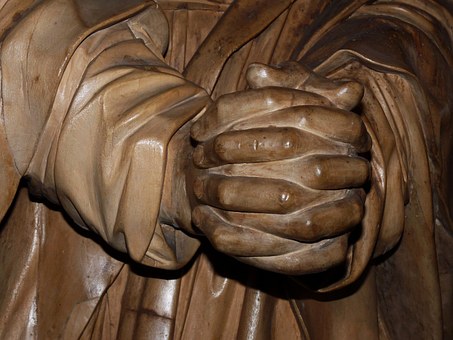
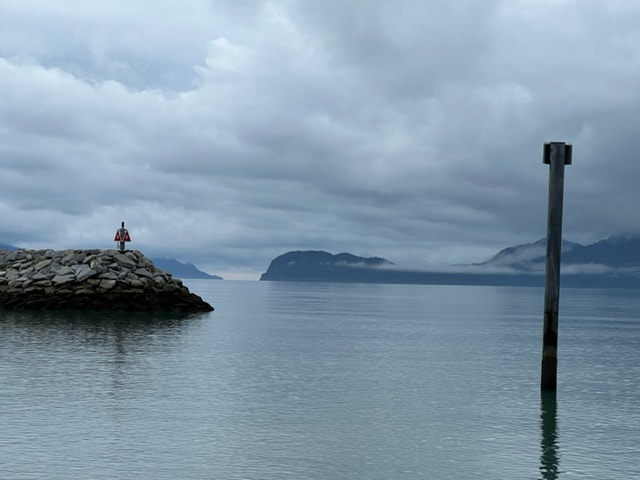
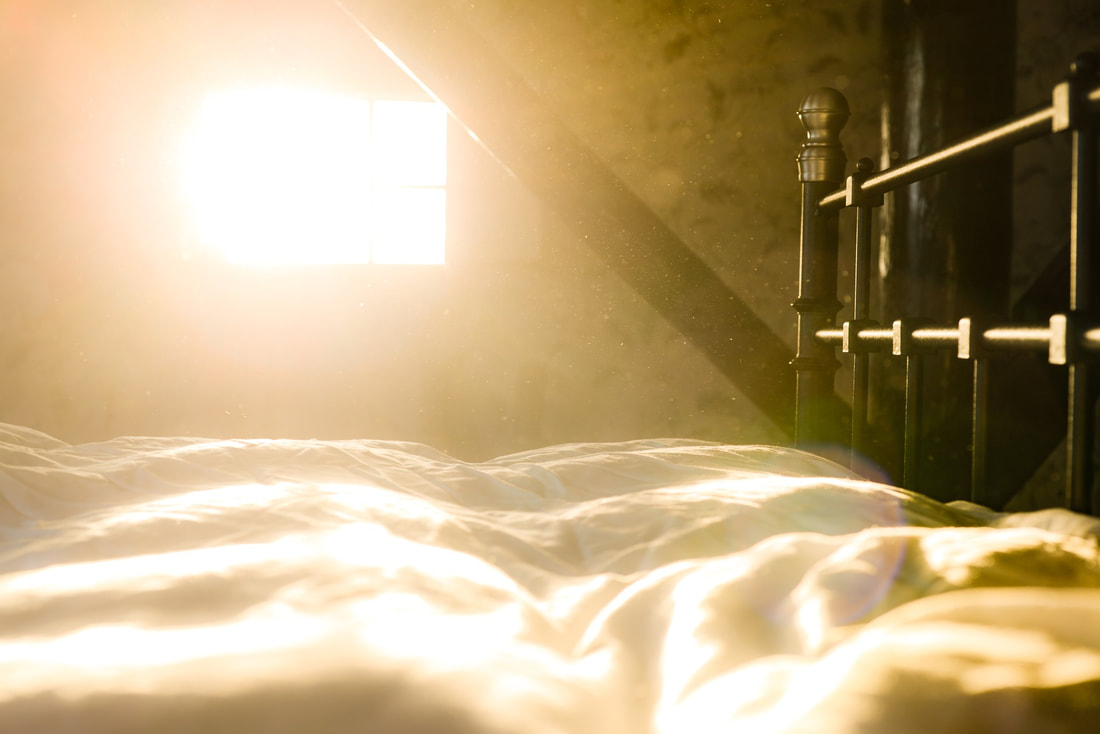

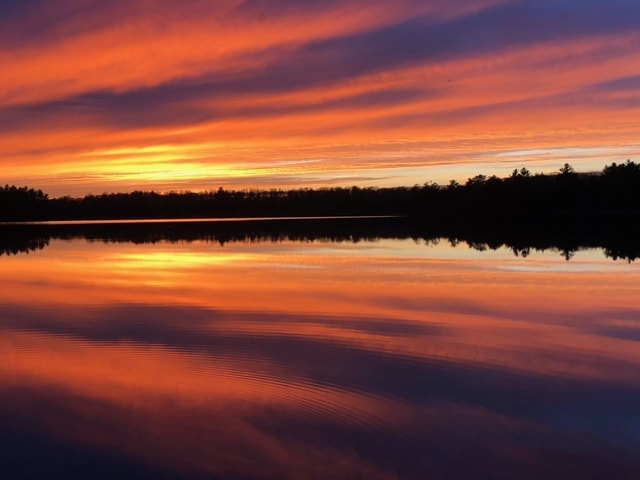
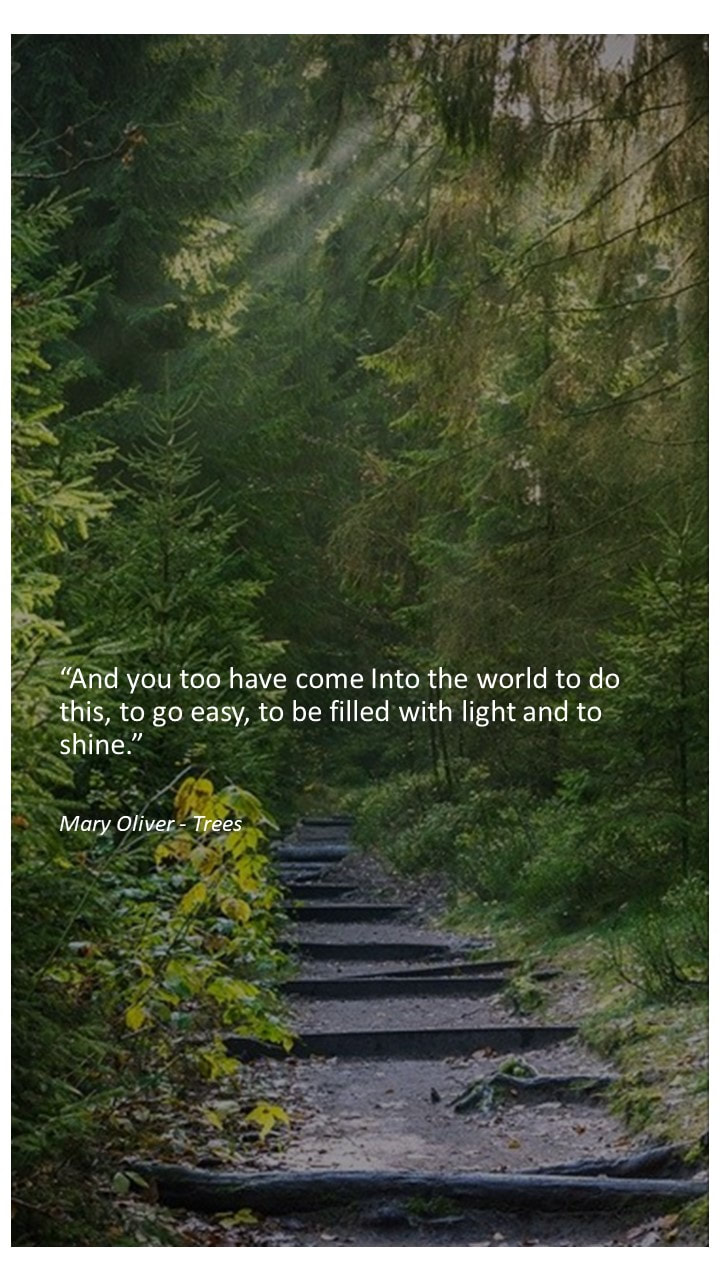
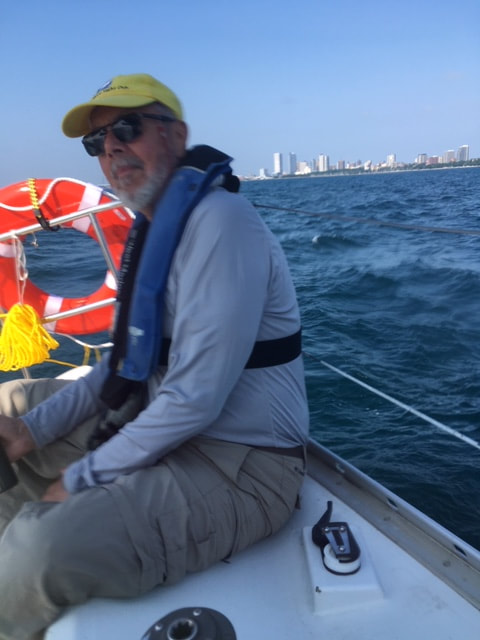
 RSS Feed
RSS Feed
